biometric
Latest
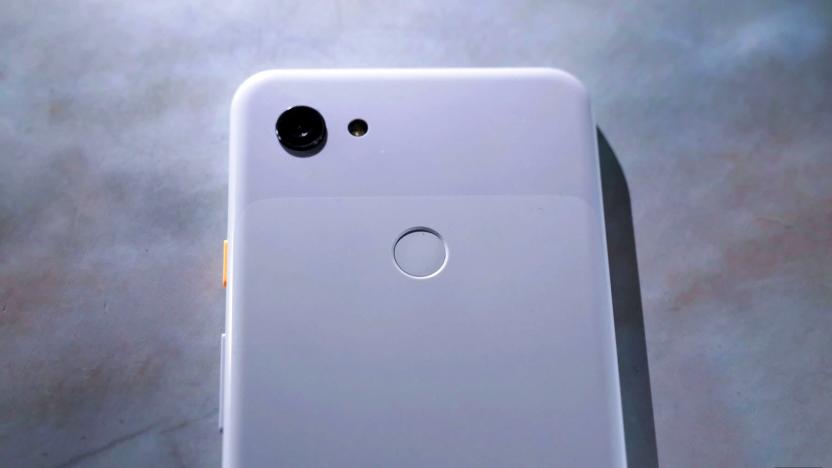
Android users can log into some Google services using their fingerprint
In its ongoing quest to rid the world of passwords, Google is introducing a new feature that allows Android owners to use their phone's fingerprint sensor or PIN lock code, instead of a password, to log into one of the company's web services. Notably, this marks the first time Google has allowed its customers to use their biometrics to authenticate their identity on the web rather than in an app.

United Airlines offers easier biometric clearance for frequent flyers
United Airlines is joining the likes of Delta and British Airways in using biometric security to speed up your airport visits. The airline has forged a deal with Clear that will bring speedy facial recognition and fingerprint scanning to its frequent flyers, helping them skip the usual document checks. Clear will be available in United's hubs at Newark Liberty International and Houston George Bush Intercontinental this summer, and there are "efforts" underway to make Clear lanes available at Chicago O'Hare in the moths ahead. Many passengers will get discounts on Clear as well, although the amount depends on just how devoted you are.

Windows 10 preview tests password-free sign-ins
Microsoft is taking its disdain for passwords to a new level. It just released a Windows 10 preview for Fast ring Insiders that gives you the option to make all accounts on a particular device "passwordless" when logging into the operating system. Flick a switch in settings (under Accounts -> Sign-in options) and a password won't work at all. You'll have to use Windows Hello face recognition, fingerprint detection, a PIN code or a physical security key to unlock your system. If you don't already have Hello enabled, Microsoft will walk you though it the next time you sign in.
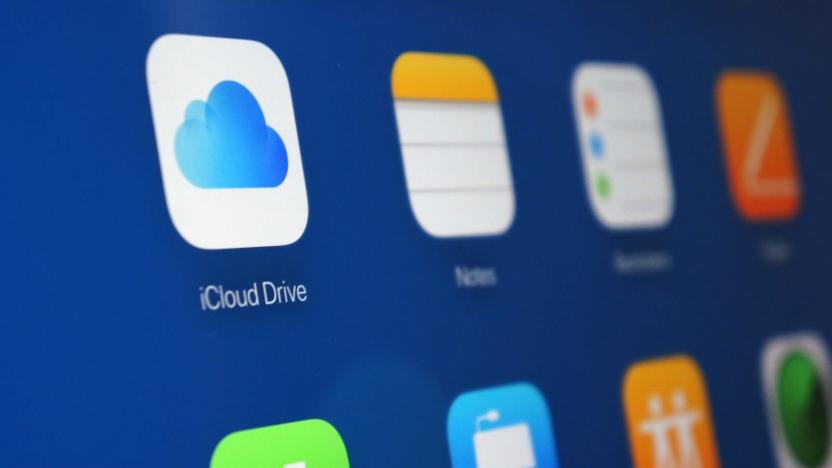
Apple tests iCloud.com sign-ins with your face or finger
The iCloud website is handy when you want to check info from an unfamiliar device or just prefer to use a browser, but the need to enter your password could be enough of a pain that you might just pull out your phone instead. Soon, though, it could be relatively effortless. The company is testing a beta iCloud site that uses Face ID or Touch ID to sign you in. You'll need a beta version of iOS 13, iPadOS or macOS Catalina, but after that it's just a matter of using your face or finger to sign in with compatible Apple gear.

Windows 10 update pushes Microsoft closer to a password-free future
With its Windows 10 May 2019 update, Microsoft is getting one step closer to eliminating passwords. The company's Windows Hello has earned its FIDO2 certification -- an industry standard that deems Windows Hello a secure authenticator. Now, users running Windows 10 version 1903 will be able to login to devices, apps and online services using biometrics or PINs, rather than passwords.
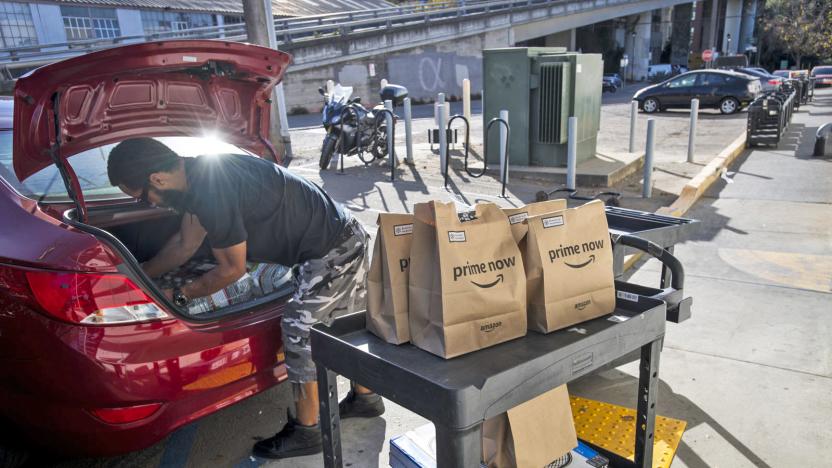
Amazon asks delivery drivers to verify their identities with selfies
Amazon is asking its delivery drivers to take selfies so it can verify their identities using facial recognition. The rules apply to drivers in the Amazon Flex program, through which they make deliveries with their own cars as independent contractors, the company confirmed to The Verge.
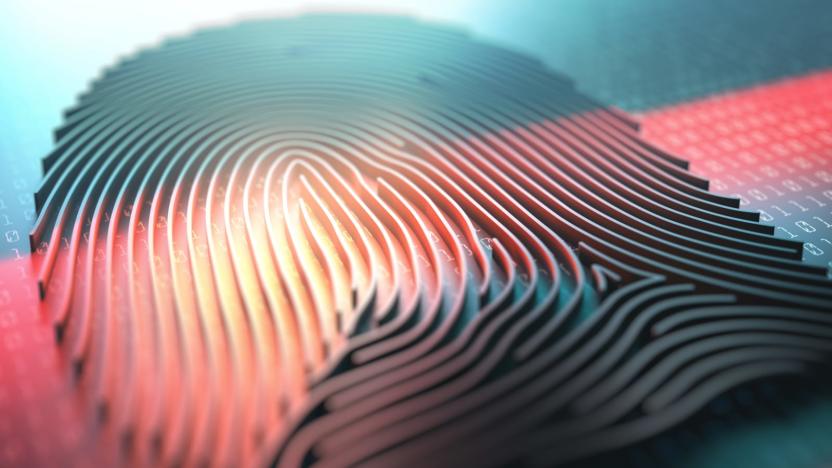
The web just got an official password-free login standard
Web Authentication (aka WebAuthn) has been a de facto standard for no-password web sign-ins for a while given that many tech giants are already using it, but now it's official. The World Wide Web Consortium and the FIDO Alliance have finalized the Web Authentication format, making it the go-to option for logging into accounts with potentially greater security and convenience than typing in your credentials. If a site supports it, you can get in using biometrics (such as fingerprints or facial recognition), USB security keys, or nearby mobile devices like phones and smartwatches.
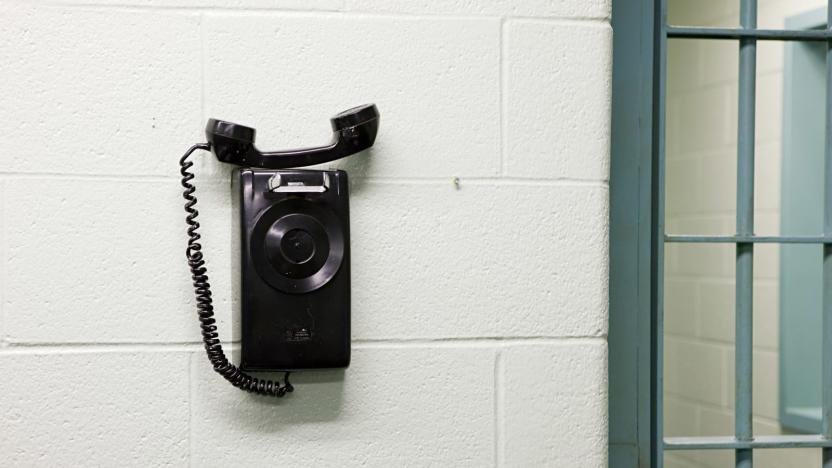
US prisons are reportedly creating 'voice print' databases
Prisons across the United States are reportedly building biometric databases that include voice recordings of incarcerated people, according to The Intercept. The report cites contracting documents for the state of New York's prison system, as well as statements from officials in Texas, Florida, Arkansas and Arizona confirming that prisons are actively using voice recognition technology that can extract and digitize voices to create unique and identifiable biometric signatures known as voice prints.
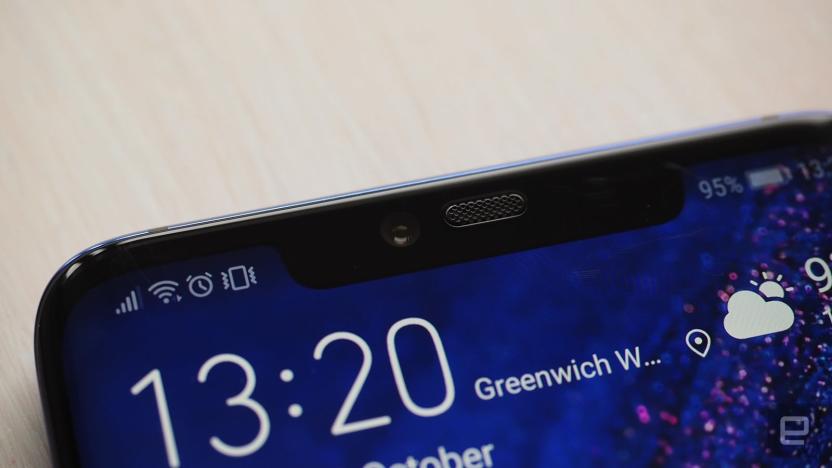
Android Q might include an equivalent to Apple's Face ID
To date, Android phone makers who've wanted to include face recognition have had to craft their own secure solutions or else use basic face detection that you can fool with a photo. Soon, however, it might be relatively commonplace. Sleuthers at XDA and 9to5Google have discovered code in an early Android Q version that hints at native support for hardware face recognition. It wouldn't just be used for signing into your phone, either, as it could also authorize purchases and sign into apps. It would largely be a parallel to the Face ID system found in Apple's more recent iPhones, just with more flexibility.

Google Assistant may scan your face to personalize commands
Google might soon have an alternative to voice matching when you want to use Assistant to get personalized results. The latest beta for Android's Google app includes code references to a previously hinted-at Face Match feature that, as the name implies, would scan your visage to provide tailored commands on camera-equipped devices. While there isn't a detailed description, you'd have to both train the system and could add multiple devices. Your face profile wouldn't be limited to one gadget, which some companies do in the name of security.

Illinois biometric privacy law passes a key court test
Illinois' Biometric Information Privacy Act just withstood a major challenge. The state's Supreme Court has returned a BIPA dispute back to circuit courts after rejecting claims that would have significantly limited the law's reach. Six Flags had fingerprinted a 14-year-old guest without his parents' approval, violating BIPA's requirement for obtaining consent, but had contended that it wasn't liable if the plaintiff couldn't show evidence of damages. A lower appeals court had sided with Six Flags, but the Supreme Court said this went against "accepted principles" of constructing laws.

Hyundai will sell a car that can be unlocked with a fingerprint
Hyundai has unveiled a new car system that lets drivers unlock and start a vehicle using their fingerprints. The tech is built in to the door handle and ignition button of the new 2019 Santa Fe SUV, showcased at an auto show in China last week.
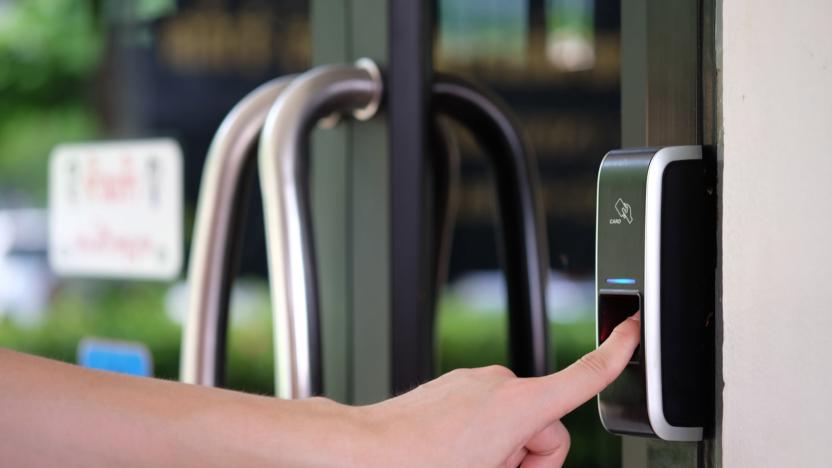
AI can create synthetic fingerprints that fool biometric scanners
Researchers from New York University have found a way to produce fake fingerprints using artificial intelligence that could fool biometric scanners (or the human eye) into thinking they're the real deal. The DeepMasterPrints, as the researchers are calling them, replicated 23 percent of fingerprints in a system that supposedly has an error rate of one in a thousand. When the false match rate was one in a hundred, the DeepMasterPrints were able to mimic real prints 77 percent of the time.
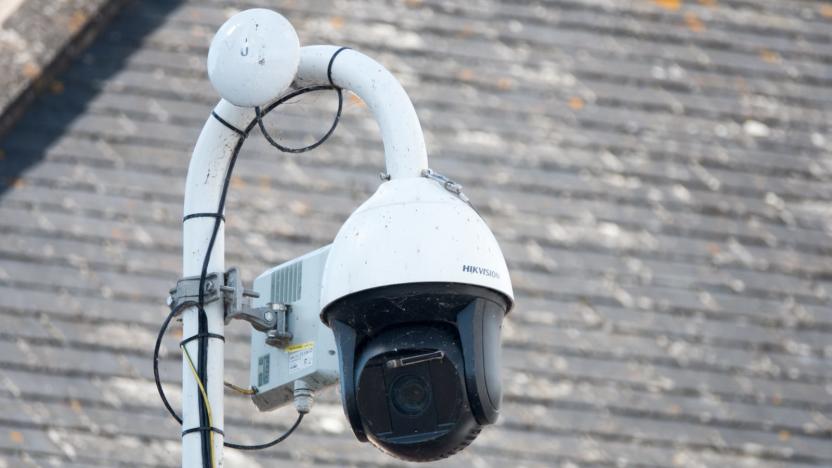
The EFF’s VR experience helps users spot surveillance devices
With surveillance technology becoming ever more ubiquitous, it would be useful to know where to look for it. At least that's the thinking behind the Electronic Frontier Foundation's Spot the Surveillance VR experience. It puts users in a virtual neighborhood as a young resident navigates an encounter with police, and it challenges users to spot all of the various surveillance technology that surrounds them. That includes devices like body cameras, automated license plate readers, drones and biometric devices.
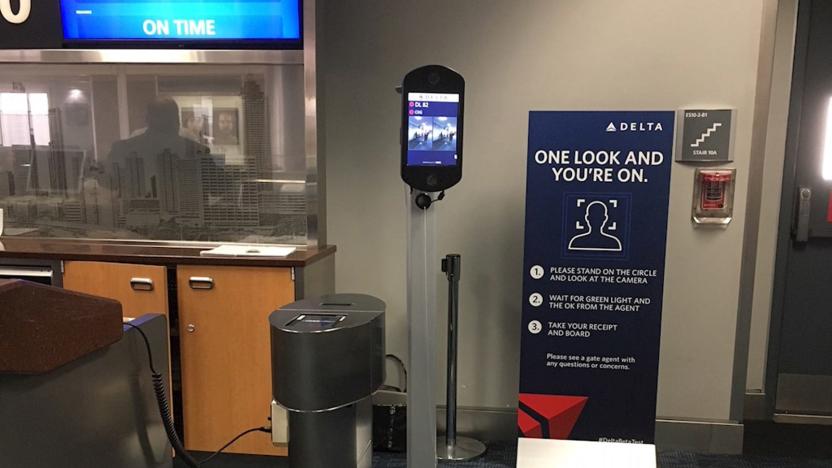
TSA outlines its plans for facial recognition on domestic flights
The Transportation Security Administration is determined to make facial recognition and other biometrics a regular part of the airport experience, and it now has a roadmap for that expansion. The effort will start by teaming with Customs and Border Protection on biometric security for international travel, followed by putting the technology into use for TSA Precheck travelers to speed up their boarding process. After that, it would both devise an "opt-in" biometric system for ordinary domestic passengers and flesh out a deeper infrastructure.
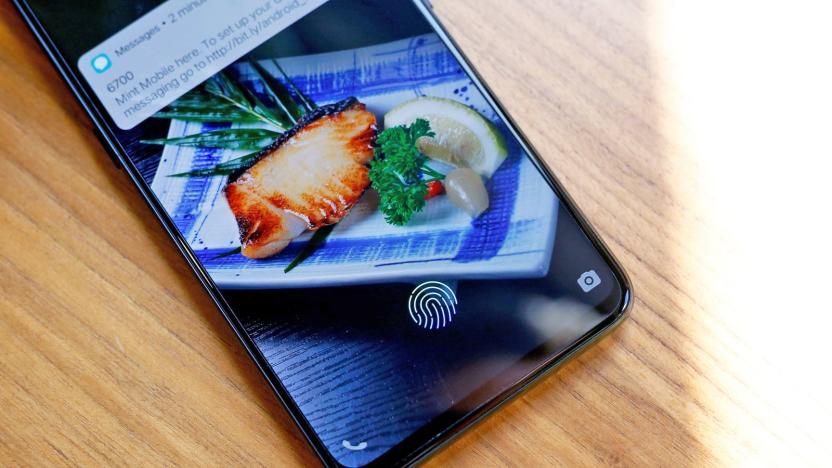
Biometric security now has an industry-wide testing standard
Biometric security is par for the course on smartphones and increasingly common on PCs, but there hasn't been a standard way to verify that the technology passes muster. That's where the FIDO Alliance might help. It's launching a first-of-its-kind Biometric Component Certification Program that will use independent labs to test the performance and security of fingerprint readers, face recognition and other sign-in devices across the industry. If a vendor wants to show that its face unlock feature can't be fooled by a photo, it won't have to jump through hoops to prove it.

Seahawks and Mariners fans can buy concessions with their fingerprints
Sports fans in Seattle now have the option of using the biometric services offered by Clear to enter stadiums, buy concessions and verify their age for alcohol purchases. Seahawks and Sounders FC fans will be able to use their fingerprints to get through security lines and to make purchases at certain concession stands at CenturyLink Field. Additionally, while Clear already allowed Mariners fans to use their fingerprints at Safeco Field's security checkpoints, game attendees can now also use Clear at select concession spots. The Seahawks are the first NFL team to partner with Clear. This also marks the first time in the US that biometric data has been approved to replace both IDs for age verification and credit cards for purchases.
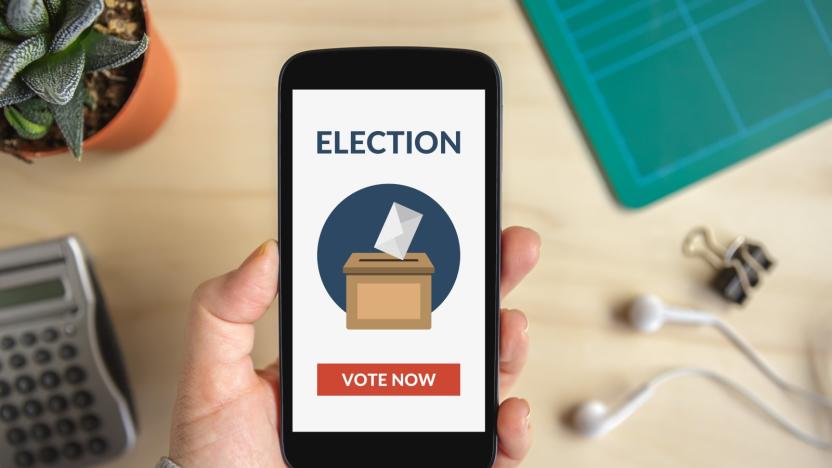
West Virginia will try mobile voting for troops serving abroad
Despite our skepticism of applying tech to the electoral process, CNN reports that after limited tests earlier this year (PDF), West Virginia is planning to roll out mobile voting for its midterm elections in November. Availability will be limited "largely" to troops serving abroad as an alternative to mailed absentee ballots, and individual counties can decide whether or not to participate. The plan is to use software from Voatz (the z, presumably, keeps it fresh), a startup that has received about $2.4 million in funding so far. Because it's 2018, Voatz naturally touts its use of blockchain technology (as well as registration based on government ID and a self-shot video for facial recognition, plus an additional layer of biometric security with either another selfie or thumbprint) to anonymously tally and verify each submitted ballot.
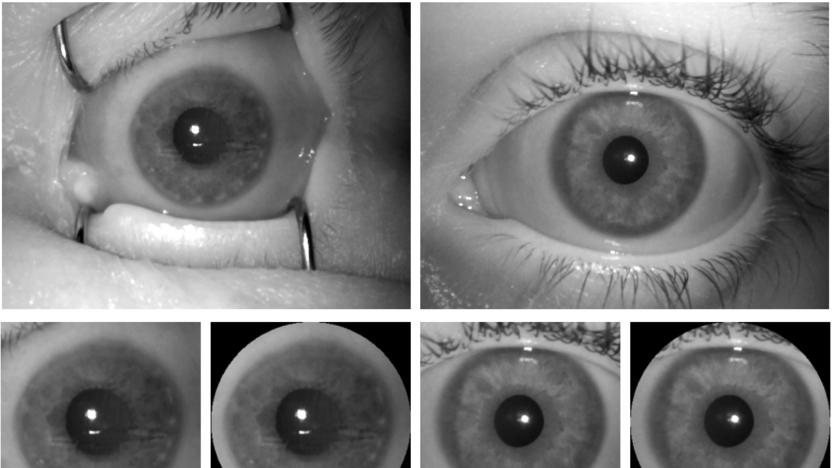
Iris scanner AI can tell the difference between the living and the dead
It's possible to use a dead person's fingerprints to unlock a device, but could you get away with exploiting the dead using an iris scanner? Not if a team of Polish researchers have their way. They've developed a machine learning algorithm that can distinguish between the irises of dead and living people with 99 percent accuracy. The scientists trained their AI on a database of iris scans from various times after death (yes, that data exists) as well as samples of hundreds of living irises, and then pitted the system against eyes that hadn't been included in the training process.

MLB is bringing biometric ticketing to select ballparks
Clear announced a new partnership today with Major League Baseball and Tickets.com that will let fans opt for biometric ticketing at certain MLB ballparks. Those who link their Clear accounts to their MLB.com accounts will be able to use their fingerprint instead of a paper or mobile ticket at participating ballparks. Clear plans to pilot this system at a small number of parks later this season and a wider rollout to Tickets.com-enabled ballparks is scheduled for the beginning of 2019. "Our collaboration with Clear is an important new technology initiative, delivering safe, simple and seamless experiences for fans," Noah Garden, MLB's executive vice president of business, said in a statement. "Developing a partnership that will unify emerging identity technology and ticketing is reflective of our commitments to always improving ballpark accessibility and maintaining critical security standards."







